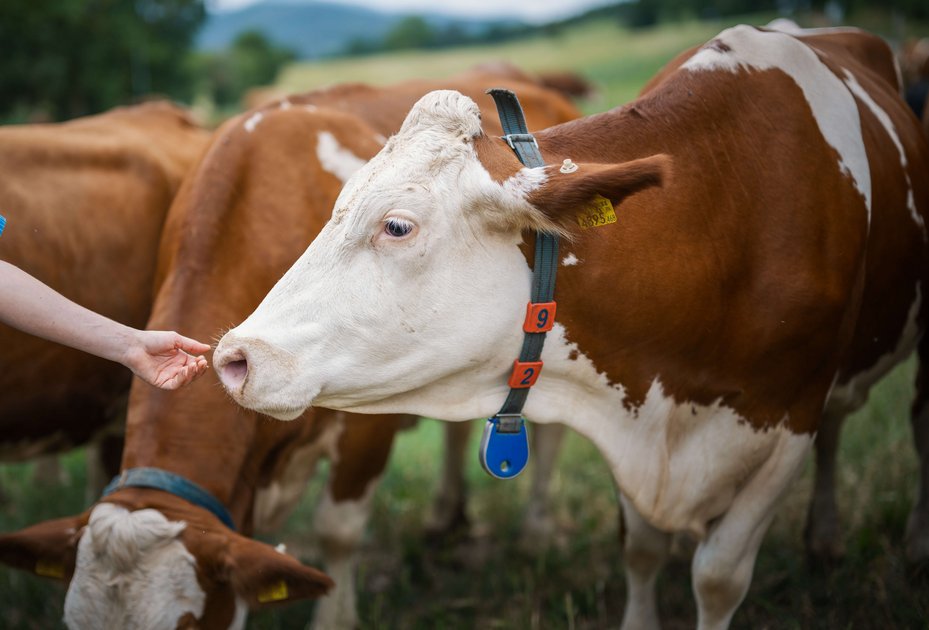- Home /
- University /
- Infoservice /
- Press Releases /
- Does artificial intelligence improve animal welfare?
Research
Does artificial intelligence improve animal welfare?
New study highlights potential, challenges, and ethical issues.

A recent study shows how artificial intelligence (AI) could revolutionize animal welfare in agriculture. A research team led by Borbala Foris from the Center for Animal Nutrition and Welfare (Vetmeduni) investigated the opportunities and challenges of AI-supported systems for automated animal welfare assessment.
Automation in agriculture is advancing rapidly, and AI-supported tools are becoming increasingly important. In particular, generative AI models such as large multimodal models (LMMs) offer new opportunities to assess and improve the welfare of farm animals at the individual level. However, the study shows that the development of such systems is associated with numerous challenges.
Technological challenges
One of the main difficulties lies in selecting suitable indicators for animal welfare. Existing protocols such as the Welfare Quality Protocol (WQP) were originally developed for human observers and need to be adapted for AI applications. In particular, the continuous measurement and evaluation of affective states poses a challenge, as no validated indicators exist for this purpose. Equally crucial is the quality of the underlying data sets, known as gold standards. A lack of diversity and reliability in these data sets can significantly limit the generalizability of the models.
“The biggest challenge is to develop AI systems that are not only accurate but also ethically acceptable. We must ensure that the technology truly reflects the needs of the animals and is not just aimed at increasing efficiency,” explains study co-author Christian Dürnberger from the Messerli Research Institute at Vetmeduni.
The study highlights that generative AI models such as GPT-4o are promising but require further optimization. A case study evaluating the cleanliness of dairy cows yielded moderate results: The accuracy in evaluating hind legs was 71%, while precision was slightly lower at 63%. Segmented images showing only the relevant body part yielded the best results. Nevertheless, the model showed a tendency to classify images as “dirty,” indicating difficulties in spatial recognition.
Ethical aspects and the One Welfare approach
In addition to the technological challenges, the scientists also highlight ethical and social aspects. Different social values and regional differences in agriculture require transparent and adaptable solutions. The study authors emphasize that the involvement of experts from the field of animal welfare science is crucial for developing valid and practical solutions. At the same time, they warn of possible “rebound effects” in which farmers could rely too heavily on AI-based systems and neglect personal observation of the animals.
The researchers advocate a One Welfare approach that integrates animal welfare, human well-being, and environmental protection. AI-supported systems could serve as “co-pilots” that provide data-based recommendations without completely replacing human decisions. This could improve decision-making while maintaining the diversity of knowledge sources. "Artificial intelligence should be understood as a tool that supports farmers, but does not replace them. Only by combining human expertise and AI-supported analyses can we achieve sustainable improvements in animal welfare," emphasizes lead author Borbala Foris, Center for Animal Nutrition and Welfare at Vetmeduni. AI-based systems have the potential to significantly improve animal welfare if they are carefully developed and implemented. The involvement of animal welfare scientists, consideration of ethical principles, and the development of robust technologies are crucial to fully exploiting the benefits of these systems. At the same time, policymakers, farmers, and society must work together to maximize the acceptance and benefits of these technologies.
The article „AI for One Welfare: the role of animal welfare scientists in developing valid and ethical AI-based welfare assessment tools” by Borbala Foris, Kehan Sheng, Christian Dürnberger, Maciej Oczak and Jean-Loup Rault was published in Frontiers in Veterinary Science.
Scientific article
Scientific contact:
Ass.-Prof. Dr.agr. Borbala Foris
Zentrum für Tierernährung und Tierschutzwissenschaften
Veterinärmedizinische Universität Wien (Vetmeduni)
Borbala.Foris@vetmeduni.ac.at